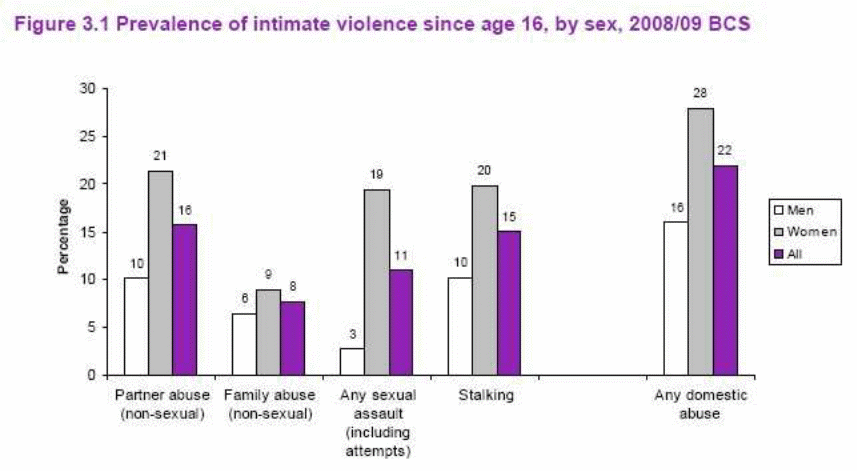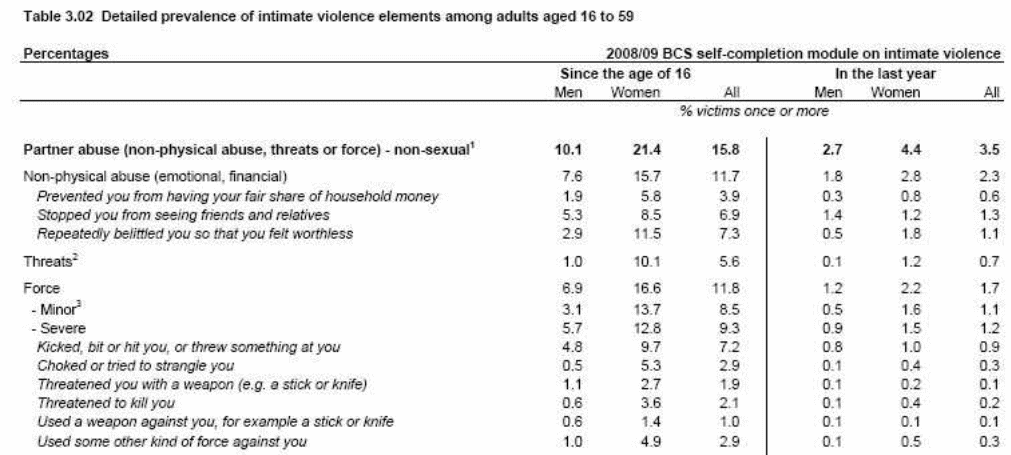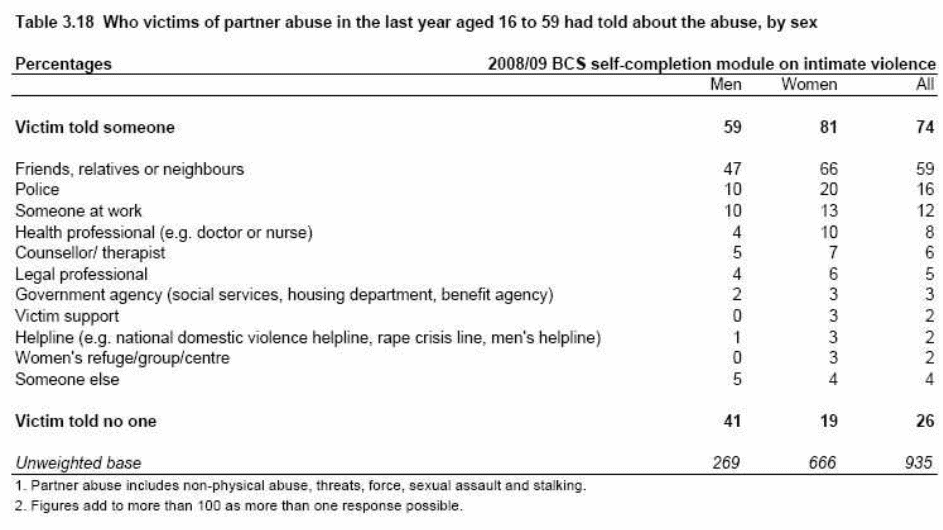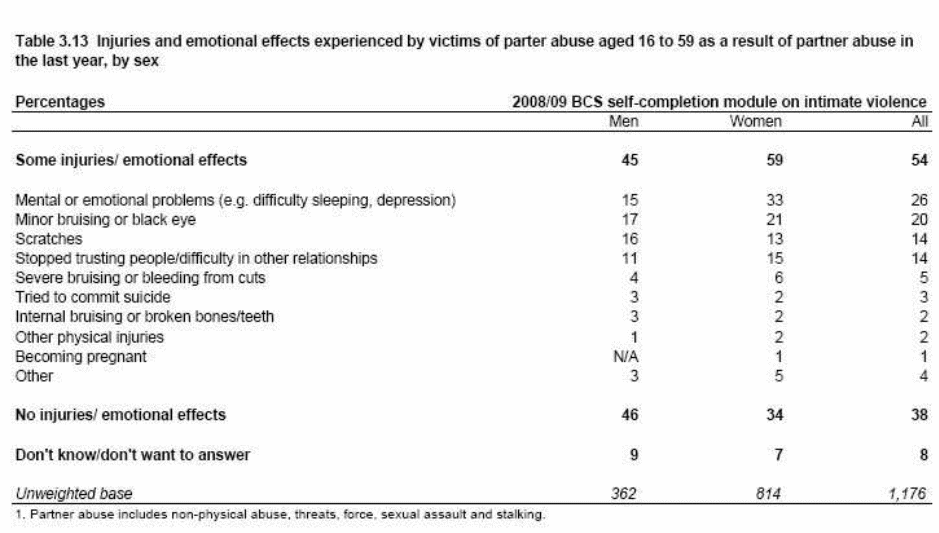Abstract
This paper explores the extent to which women and, or men experience despotism within the domestic sphere. We examine various forms of power abuse within a domestic sphere and effects of such abuses. The paper reviews past studies in order to draw a logical conclusion on despotism within a domestic sphere.
Studies show that despotism within the domestic sphere is widespread. However, there are substantial differences in countries, cities, rural areas, and among victims who experience despotism. Partner abuses contribute to high rates of homicides affecting both men and women globally. As a result, some organisations like the UN and WHO consider domestic despotism as health inequalities affecting mainly women and hindering access to effective healthcare.
Introduction
Power abuse is common within a domestic sphere. Despotism within a domestic sphere may also take the form of domestic violence. Despotism reflects a coercive behaviours and actions men or women use in order to gain power and control over another. Despotism usually takes many forms such as verbal, physical, sexual abuse, economic, emotional abuse, and stalking in some cases.
Forms of Despotism within a Domestic Sphere
Physical violence:
- Use of physical actions
- Physical coercion
- Use of weapons
- Stalking
Sexual abuse:
- Forced sexual activities
- Assault on sexual organs
- Sexual pressure
- Rape (also includes rape between married partners)
Emotional, Psychological, and Verbal Abuse:
- Intimidation and coercive actions
- Controlling activities of a partner
- Undermining a person’s self-worth and self-esteem
- Humiliation
- Defamation
- Separating a partner from a family and friends
- Putting responsibility on the abused partner
Economic abuse:
- Controlling family finances
- Controlling accessibility of money
- Making a partner financial dependent
- Controlling a partner’s work or pursuit of education
It is significant to note that despotism within a domestic sphere affects opposite both sex relationships and gay marriages. It also extends to divorced couples, intimate partners, or people on courtship and staying together. In addition, despotism between men and women extends to all members of the family and other relations outside the family and to society.
The Extent of Despotism in a domestic Sphere
From 1970s, abuse of power against women achieved “the recognition across the public sphere and the academic community” (VAWOR, 2010). However, despotism within the domestic sphere has been in existence for many decades. According to Violence against Women Online Resources (VAWOR), despotism is a crime in which “women were more likely to experience than men” (VAWOR, 2010).
Tjaden and Thoennes noted that nearly “1.5 million women are raped and or physically assaulted by an intimate partner annually” (Tjaden and Thoennes, 2000). Rennison observed that in 2001, there were 691,710 nonfatal violent victimisations committed by current or former spouses, boyfriends, or girlfriends of the victims” (Rennison, 2003).
These data originated from the Bureau of Justice Statistics Crime Data Brief, which only focused on “physical assaults between men and women within a domestic sphere” (Rennison, 2003). Most of these abuses (85 percent) affected women. In addition, women experienced physical assault more than their male counterparts did.
On the other hand, men also experience despotism within a domestic sphere. However, the extents at which men experience such abuses are low in comparison to women. Hines and Malley-Morrison observed that there is a substantial research literature focusing on abuse against women (Hines and Malley-Morrison, 2001). However, there is minimal research on despotism against men.
However, some previous works have such data but with inadequate information related to consequences of such abuses. Therefore, it is imperative to note that power abuse against men also exist within a domestic sphere. We have to recognise that male victims do not prefer to report their cases of abuses, but there are adequate male victims to power abuse that can provide substantial ground for research (Hines and Malley-Morrison, 2001).
Rennison estimated that in 2000, intimate partners (men) killed 1,247 compared to 440 men, who intimate partners (women) killed in the same period (Rennison, 2003). There are many barriers, which partners face in cases of despotism within a domestic sphere. These include the following:
- Fear of continued abuse
- Fear that the abuser shall isolate them from the rest of the family members and friends
- Believing that abuser has a potential to change
- Self-blame
- Embarrassment
- Financial conditions
- Inadequate knowledge about sources of help
People who experience power abuse may also experience other forms of barriers such as, “language barriers, fear of deportation, and exclusion from the rest of the society among others” (Rennison, 2003).
People also fail to report incident of despotism within a domestic sphere to authorities. According to the National Violence against Women Survey (NVAWS), women above 18 years of age experienced about “one-fifth of all rapes, one-quarter of all physical assaults, and one-half of all stalking perpetrated against female respondents by intimates partners were the only cases reported to the police” (VAWOR, 2010).
At the same time, such records do not account for homeless persons or people living in institutional settings for victims of abuse (Rennison and Welchans, 2000).

Domestic despotism among populations
Studies have shown that certain groups are prone to domestic despotism more than other groups. Such power abuse affects mainly people within certain groups than other groups. These forms of abuses are common to all members of society. People with disabilities experience domestic despotism. However, few studies exist to demonstrate their plights.
Nosek and Howland observed that most cases of domestic power abuse involving individuals with disabilities exist, but in most cases, victims fail to report such cases due to varied reasons (Nosek and Howland, 1998). They noted that only 40 percent of “women with disabilities reported their cases of abuses” (Tjaden and Thoennes, 2000). Victims also experienced despotism in forms of withholding recommended treatment and other assistive devices.
Individuals with disabilities do not report their cases due to fear of losing caregiver, difficulties in communications, and other factors related to discrimination. People of various ethnic or racial communities also experience despotism within a domestic setting.
For instance, in the US, Tjaden and Thoennes noted, “African-American and Native American or Alaskan Indian women and men reported higher rates of domestic violence than did women and men from other communities of colour” (Tjaden and Thoennes, 2000). On the other hand, they found out that Asian or Pacific Islander women and men reported low cases of despotism involving intimate partners within a domestic sphere.
Further, Tjaden and Thoennes noted that at least 23.4 percent of Latina or Hispanic women had experienced despotism during their lifetime. Generally, African-American women experienced high rates of despotism than did their white counterparts (Rennison and Welchans, 2000).
Benson and Fox looked at race and domestic power abuse within economic class. They observed that “African-Americans and whites with the same economic characteristics have similar rates of intimate violence, but African-Americans have a higher overall rate of intimate violence due in part to higher levels of economic distress and location in disadvantaged neighbourhoods” (Benson and Fox, 2004). Like in other cases, not all victims report their cases to relevant authorities.
Immigrant women tend to remain in “abusive relationships due to their statuses of citizenship” (Pendleton, 2003). Pendleton highlights that abusers use threats in order to intimidate their victims. Such acts include threats to report their undocumented status, revoke of residency, sponsorship, or failure to assist in filing relevant documents for lawful stay in a country (Pendleton, 2003).
Still, immigrants also have challenges relating to language difficulties, lack of knowledge about the legal system, and various cultural norms. A study by Adler showed that rural women and men experienced high rates of despotism within a domestic sphere (Adler, 1996). He attributed many barriers to victims of power abuse within rural settings. These included high-levels of poverty, a lack of sufficient information, and limited access to helpful resources and information.
Fountain and Skolnik noted that during the year 2006, a total of “3,534 incidents of domestic violence affecting lesbian, gay, bisexual, and transgender (LGBT) individuals were reported to the 33 community-based anti-violence programs in 12 regions, which make up the National Coalition of Anti-Violence Programs (NCAVP)” (Fountain and Skolnik, 2007).
Power abuse against LGBT is not rampant, but some studies indicate that cases of despotism in LGBT relationships are on the rise. However, LGBT victims fail to report their cases to authorities due to fear of victimisation and discrimination. According to Brandl and Cook-Daniels, people in later stages of life also experience despotism within a domestic sphere (Brandl and Cook-Daniels, 2002). However, such forms of abuses are under ‘elder abuse’.
Offenders in these cases vary from spouses, former partners, boyfriends, and girlfriends. Again, cases of failure to report cases of abuses are common among older people. Denis Campbell noted that police and media ignored cases of assault against men committed by wives or girlfriends in the UK (Campbell, 2010). According to this report, 40 percent of domestic abuses affected men.
The situations of men are worse because they do not have rescue centres. This suggests that women are not always the victims of despotism within a domestic sphere. According to the British Crime Survey, between 2004 and 2009, men made up 40 percent of cases of domestic abuse. In addition, the figure has been on the increasing trend.

Like other authors, Walby and Allen note that women are more likely to experiences multiple cases of abuse than male do (Walby and Allen, 2004). They observed that nearly “32% of women who had ever experienced domestic violence did so four or many times in relation to 11% of men who had ever experienced domestic violence” (Walby and Allen, 2004). Women experienced repeated cases of abuses (89 percent).

Duration of Despotism
According to British Crime Survey (2008 to 2009), men who have suffered partners’ abuses for more than one year consists of 20 percent while 40 percent of women have experienced continued abuses.
Ten percent of men who experienced partners’ abuses in 2008 and 2009 did so more than six times, whereas only 15 percent of the women experienced same treatments.
Therefore, it is appropriate to conclude that women experience various forms of partners’ abuses in many ways and many times than do their men counterparts.
Effects of despotism within the domestic sphere
Despotism has severe effects on both women and men. It affects physical and mental health statuses and various aspects of victims’ lives. Some studies have indicated that homeless among women resulted from despotism within the family (VAWOR, 2010). However, such power abuses within domestic spheres have severe effects on children.

Data from the UK and Scotland show that at least 750,000 children witness various forms of domestic power abuse every year. This suggests that such children are also at risks of “experiencing behavioural challenges and trauma, and mental problems in later stages of life” (Home Office, 2009). Such studies have also indicated that almost three-quarters of children are also in the same households in which despotism occurs.
Domestic power abuse is a major cause of homelessness among men and women in the world. For instance, Women’s Aid noted that 60 percent of the women were homeless because such women left their homes due to abuses. In addition, women feared that their partners might kill or harm them together with their children.
Still, in a research by Shelter, 40 percent of women indicate that power abuses within their homes are the main causes of homelessness (Home Office, 2009). Repeat victimisation is also a common feature of despotism within a domestic sphere. The British Crime Survey (2008 and 2009) shows that 44 percent of abused cases recur more than once, in some cases, 18 percent of such victims may experience abuses more than three times.
However, women form the greatest number of victims of repeat abuses. At the same time, such women also fear reporting due to further abuses. Despotism also has health complications to victims. Studies show that partners who have experienced abuses also show serious consequences of physical and mental health. In some cases, such health complications may be chronic (Home Office, 2009).
Women exhibited depression, sexual dysfunction, sleeping and eating disorders, anxiety, and mental and emotional problems. Such abuses may also affect reproductive systems of women. Many forms of domestic power abuses were also responsible for high rates of injuries (70 percent) compared to injuries suffered from other forms of attacks or violence.
These include included 75 percent of emotional or physical injuries to women. According to Walby and Allen, the cost of treating “physical health of victims of domestic violence is £1,220,247,000 i.e. three percent of total NHS budget” (Walby and Allen, 2004). Such costs emanate from ambulance, hospitalization, and prescriptions. On the other hand, mental disorder accounted for £176,000,000.
Studies also show that domestic abuses are the highest causes of depression and other mental health disorders among women (Home Office, 2009). Repeated cases of victimisation of often lead to self-harm and cases of attempted suicides. According to Home Office, “more than one-third of women in emergency departments were cases of self-harm due to domestic violence” (Home Office, 2009).
Abused women were like to attempt suicide due to their past or present experiences involving despotism within a domestic a sphere. The extents of physical injuries among abused men remain low compared to women. Thus, it is imperative to review psychological effects of abuse on men. Most studies tend to relate the number of physically abused men against abused women.
Such studies highlight effects of despotism within the domestic sphere. Hines and Malley-Morrison concluded that abused men are at risk of “emotional hurt, fear, helplessness, anger, revenge seeking, sadness, shame and humiliation, depression, stress, psychological distress, and psychosomatic symptoms” (Hines and Malley-Morrison, 2001).
Research in domestic abuse against men in Scotland has identified two factors that make it difficult to account for despotism against men. First, researchers argue that not many men admit cases despotism against within a domestic sphere. Second, men who have experienced such cases may refute such claims later. Such cases have created inaccuracy in data gathered about men and despotism within a domestic sphere.
Men have varied reasons for staying with abusive partners. Most men consider cases of abuse as isolated, which they can easily overcome. In addition, men tend to take responsibilities for their partners’ conditions. Further, most men also believe that their relationships have positive benefits, which outweigh incidences of abuses from their partners. However, not many men stay in such abusive relationship because of their children or financial conditions.
Men prone to partners’ abuses also have different definitions of what they consider as abusive. For instance, some men have narrowed definition of abuse to physical assaults, infidelity, a lack of trust, restriction, and forceful discussion of problems at inappropriate times.
Therefore, such studies suggest that there is a need to for further studies in order to explore in-depth both cases of perpetrators’ and victims’ views on despotism so as to understand the dynamics of despotism within a domestic sphere.
Conclusion
Statistics show that women are still prone to despotism within the domestic sphere compared to men. Previous works have concentrated on effects of such abuses, especially physical injuries in men and women. While it remains clear that abused women experience high rates of physical injuries than men, however, we have to emphasise that abused men are also at high risks of experiencing physical injuries from their partners.
Some studies also show that men in intimate relationships experience abuse. However, men have adopted various definitions of despotism within their domestic spheres in order to fit their conditions. Such abuses take both forms of minor and severe abuses, which we cannot consider as forms of self-defence.
We have also noted that not many countries have forums for male victims of despotism. However, some organisations claim that their services are open to both sexes of abuses. On the same note, minority groups also suffer cases of abuses, but their issues are not of central to concern to many. For instance, LGBT groups experience domestic abuse but may not get the necessary statutory services for their claims.
Therefore, small numbers of male victims and other minority groups do not receive necessary services. This implies that agencies that support male victims and other minority groups must enhance their advocacy strategies in order to match the needs of men and women experiencing despotism with the domestic sphere.
Reference List
Adler, C 1996, Unheard and unseen: Rural women and domestic violence. Journal of Nurse-Midwifery, vol. 41, no. 6, pp. 463-466.
Benson, M and Fox, G 2004, When violence hits home: How economics and neighborhood play a role. Washington, DC: National Institute of Justice.
Brandl, B and Cook-Daniels, L 2002, Domestic abuse in later life. Harrisburg, PA: VAW.
Campbell, D 2010, The Observer: More than 40% of domestic violence victims are male, report reveals. Web.
Fountain, K and Skolnik, A 2007, Lesbian, gay, bisexual and transgender domestic violence in the United States in 2006: A report of the National Coalition of Anti-Violence Programs. Web.
Hines, D and Malley-Morrison, K 2001, Psychological Effects of Partner Abuse Against Men: A Neglected Research Area. Psychology of Men & Masculinity, vol. 2, no. 2, pp. 75-85.
Home Office 2009, British Crime Survey: England and Wales 2008/9, Home Office, London.
Nosek, M and Howland, C 1998, Abuse and women with disabilities, VAW, Harrisburg, PA.
Pendleton, G 2003, Ensuring fairness and justice for noncitizen survivors of domestic violence. Juvenile and Family Court Journal, pp. 69-86.
Rennison, C and Welchans, S 2000, Intimate partner violence: Bureau of Justice Statistics Special Report (NCJ 178247), US Department of Justice, Washington, DC.
Rennison, M. (2003). Intimate partner violence, 1993-2001: (NCJ 197838), Bureau of Justice Statistics Crime Data, Washington, DC.
Tjaden, P and Thoennes, N 2000, Extent, nature and consequences of intimate partner violence: Findings from the National Violence Against Women Survey (NCJ 181867), National Institute of Justice/Centers for Disease Control and Prevention, Washington, DC.
VAWOR 2010, The Facts about Domestic Violence. Web.
Walby, S and Allen, J 2004, Domestic violence, sexual assault and stalking: Findings from the British Crime Survey, Home Office, Development and Statistics Directorate, London.